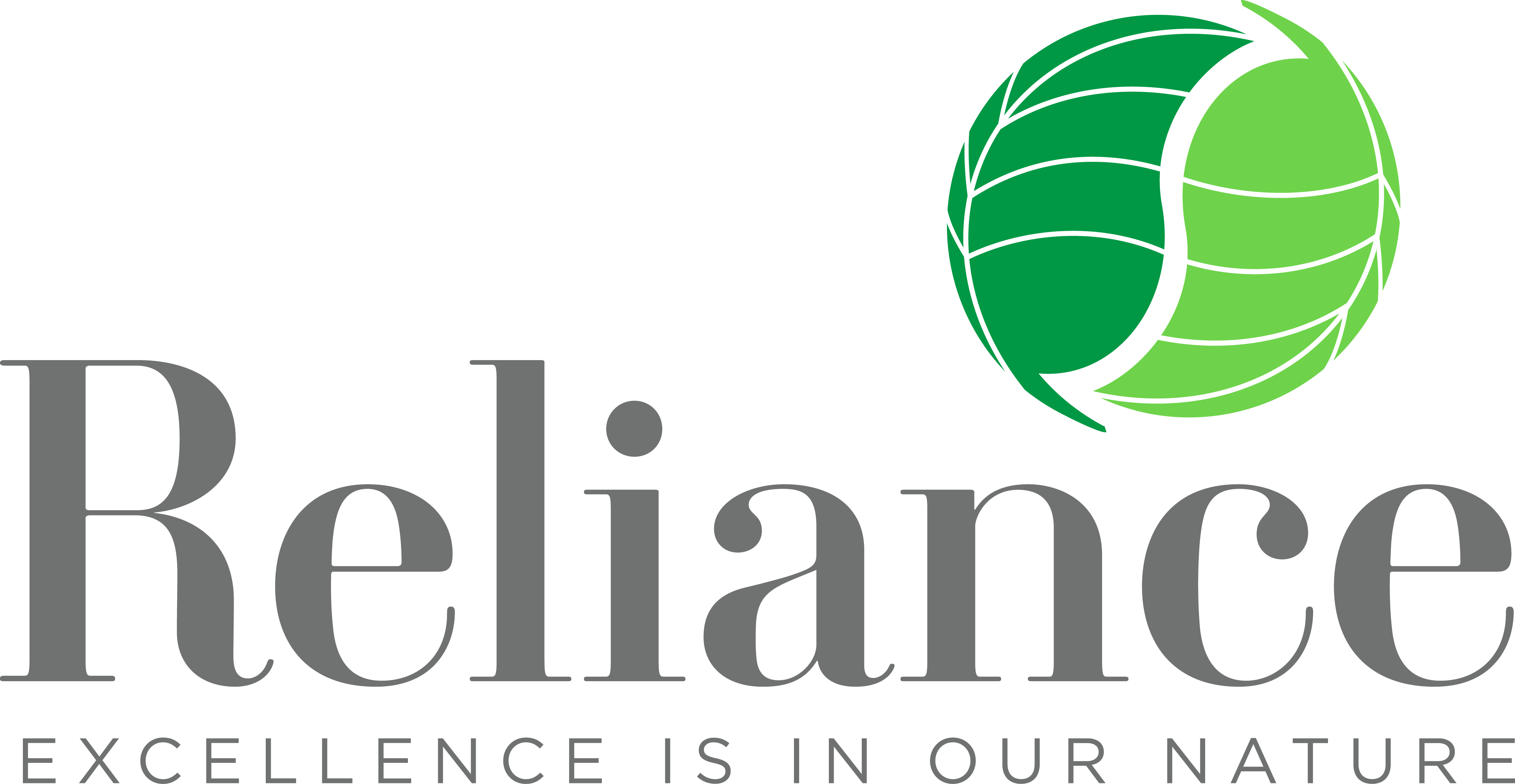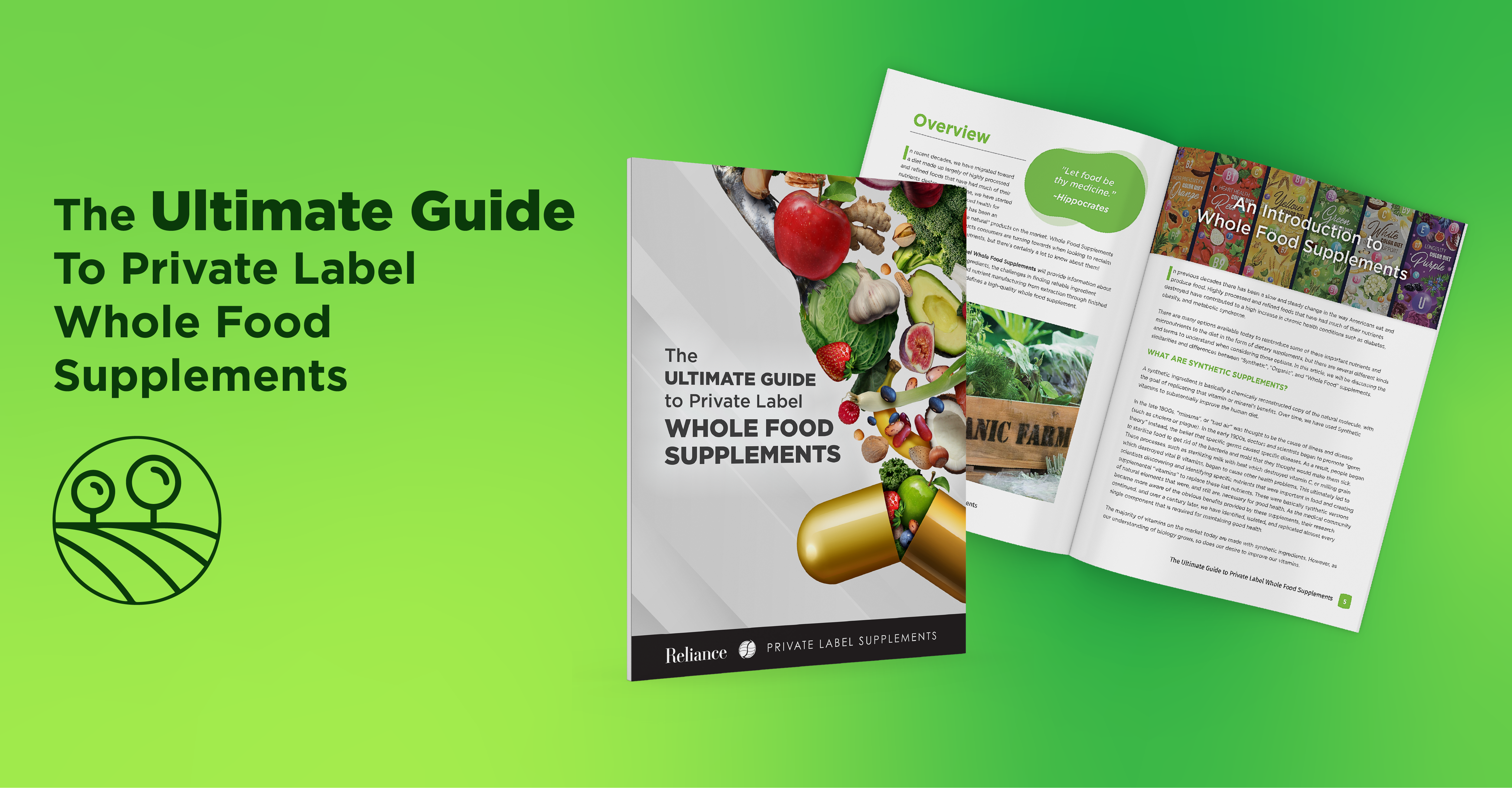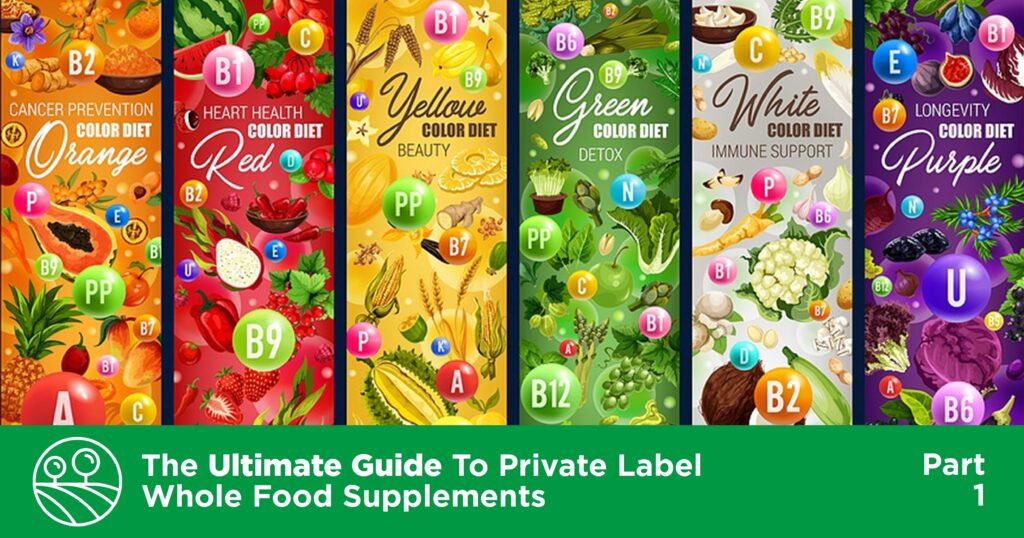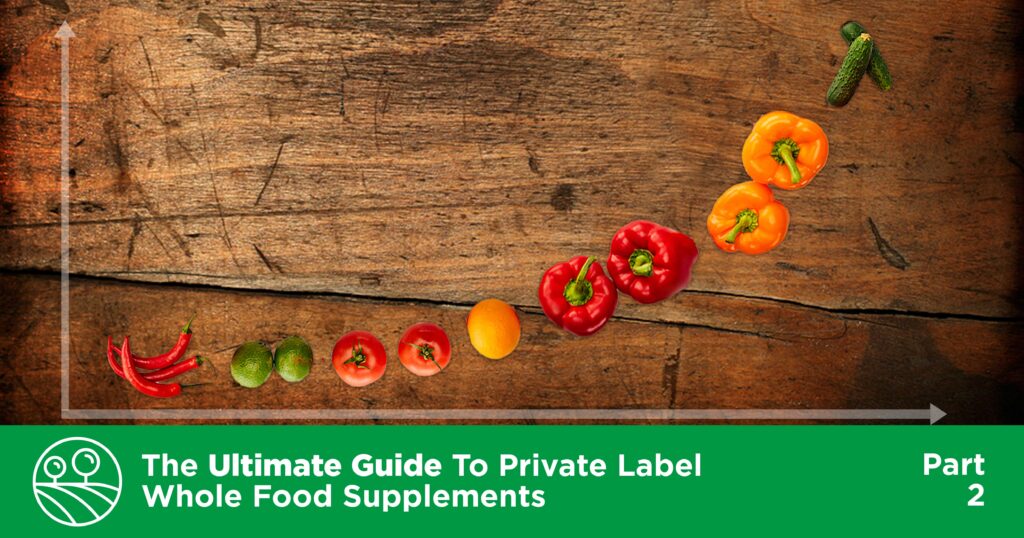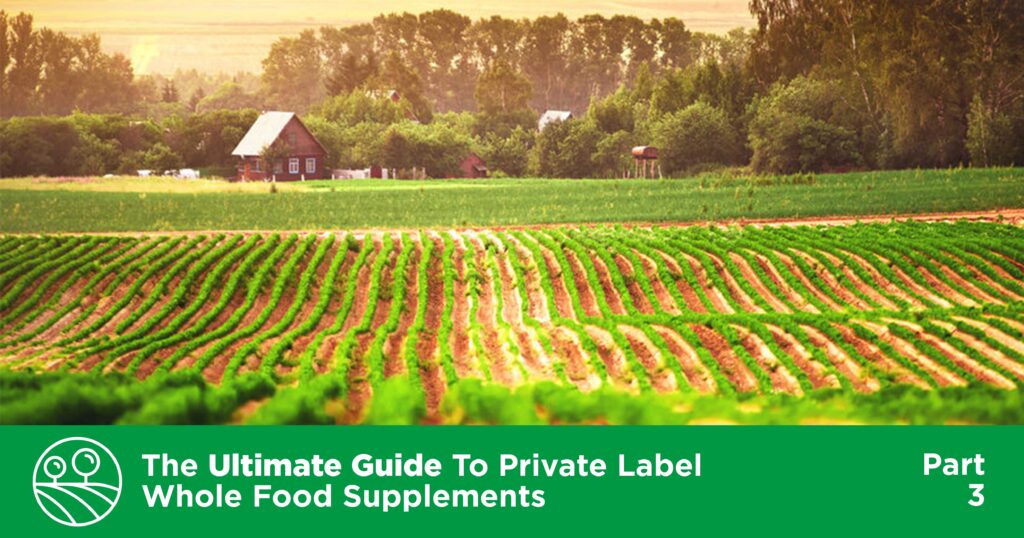In recent decades, we have migrated toward a diet made up largely of highly processed and refined foods that have had much of their nutrients destroyed. Over time, we have started to realize that we have sacrificed health for convenience. As a result, there has been an emergence of “healthier”, “more natural” products on the market. Whole Food Supplements are at the top of the list of products consumers are turning towards when looking to reclaim some of those “lost”, beneficial nutrients, but there’s certainly a lot to know about them!
This Ultimate Guide to Private Label Whole Food Supplements will provide information about the benefits of whole food-based ingredients, the challenges in finding reliable ingredient sources, the complexity of whole food nutrient manufacturing from extraction through finished product testing, and what ultimately defines a high-quality whole food supplement.
An Introduction To Whole Food Supplements
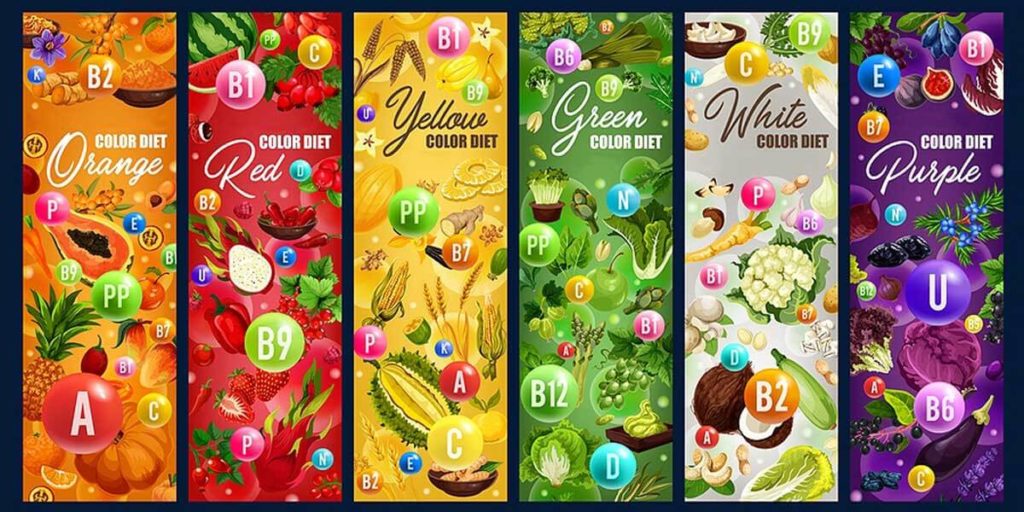
Whole Foods supplements are made from primarily plant-based foods that are processed and refined as little as possible, if at all, before being consumed. They are typically concentrated and/or dehydrated plants, such as whole grains, tubers, legumes, fruits, and vegetables.
The majority of dietary supplements on the market today are made up of synthetic ingredients. A synthetic ingredient is basically a chemically reconstructed copy of the natural molecule, with the goal of replicating that vitamin or mineral’s benefits. They are man-made versions of natural elements that are necessary for good health.
Although a “natural” product might be almost 100%, or even completely derived from sources only found in nature, it is rare. A supplement can be marked as being “natural” if it contains as little as 10% of natural, plant-derived ingredients. (The other 90% can be synthetic.) The natural parts of a formula marketed as “natural” would be comprised of nutrients sourced from vegetable, mineral, or animals, then processed and refined into their supplement forms, but how much of the entire product is, in fact, natural is hard to know.
➤ Learn More About the Benefits of Whole Food Supplements
Trends And Targets For Private Label Whole Food Supplements
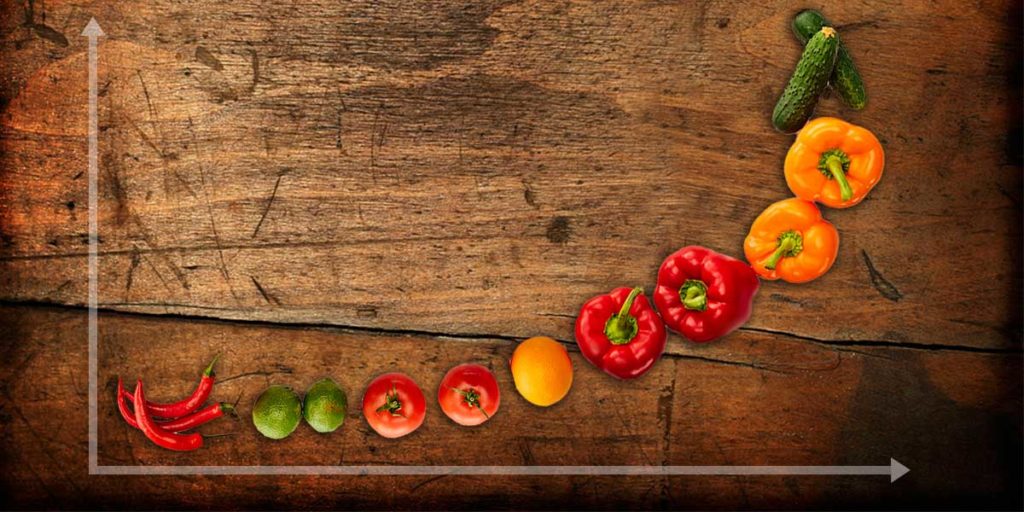
As consumers turn their focus toward living a healthy lifestyle, many are choosing to include at least one private label dietary supplement in their diet to ensure they are getting all of the essential nutrients they need. Some advantages to the consumer in selecting these whole food options, whether real or perceived, are the enhanced bioavailability and complexity the whole food sources provide as a result of gentler processing.
The Millennial generation of today is more likely than the generations before them to see food as a healthful and natural way to manage their health conditions and detoxify their bodies. This holistic outlook aligns with the supplement industry, which can’t make disease claims but can make holistic and lifestyle claims that speak directly to how millennials assess their health. The clean, minimally processed, natural ingredients provided by whole food supplements as well as their values and environmental concerns make them a perfect consumer for this category.
Whole Foods nutrition is at the center of growth, constantly innovating to meet the growing consumer demand for wellness, nutrition, clean ingredients, and core lifestyle values. As the dietary supplement consumers continue to push for transparency, purchasing decisions are no longer just based on which products contain animal-based ingredients, but which ones are free of major allergens, pesticides, artificial colors or flavors, and which ones are most closely representing the nutrition they would get from eating real food.
➤ Learn More About the Massive Market Growth in Whole Food Supplements
What Makes A High-Quality Private Label Whole Food Supplement

Supplements can be made in a variety of ways, and they run the gamut from being 100% synthetic to 100% natural. Dietary supplements can be 100% synthetic, where everything is made in a lab, to 100% organic, where each ingredient in the formula must be traced back to its origin and doesn’t allow for many commonly used manufacturing aids (pesticides, fillers, etc.). In between these two extremes, there are many different methods for creating dietary supplements based on the goals of cost, flavor profile, nutritional value, and targeted benefit that influence the manufacturer’s decision.
Today’s consumer demand for label callouts such as “Organic”, “Non-GMO”, and “Whole Food” to ensure that the product contains clean, pure ingredients means that manufacturers need to be knowledgeable and experienced in several areas. Sourcing the quality of ingredients and finding a supplier who can provide them consistently is just the first step.
The extraction process of whole foods and herbs does not use chemical solvents, which means that new and complex methods need to be perfected in order to obtain the nutrients from the source. Whole food supplements are also less processed than the other types of supplements, which means sophisticated processes such as freeze-drying herbs or growing nutrients into a fermentation matrix must be employed. Also, appropriate quality control and testing measures must take place in order to ensure that all product specifications are being met.
➤ Learn More About What Defines a Supplement as “Whole Food“
How To Select A Private Label Whole Food Supplement Manufacturer

Although multivitamin and mineral supplements are the most commonly used whole food products, offering a range of private label whole food supplements is an excellent way to deliver high-quality options that add value to a brand and attract market demand from significant consumer populations. Overwhelmingly, the values and preferences of millennial shoppers align quite well with the benefits and advantages of whole foods dietary supplements, and they make up the lion’s share of this category’s consumer demographic. Offering a range of products, however, means that several other health-driven consumers (such as a mom-to-be or a nutritionally savvy athlete) can also benefit from these products.
Including trademarked, branded, or patented ingredients is a great way to add value to private label supplements. These ingredients come with a breadth of supportive research guaranteeing their safety and efficacy. Some benefits of branded ingredients are unbiased, high-standard research, vigorous testing protocols that ensure product quality and safety, and the ability to reference the clinical studies that have been done using these ingredients.
An easy way for consumers to recognize a high-quality whole food supplements is to scan the label for any official seals, such as Organic or Non-GMO Project Verified.
Organic supplements come from foods that are produced by methods complying with the standards of organic farming, generally restricting the use of certain pesticides and fertilizers and employing various environmentally friendly protocols in their manufacturing process.
Non-GMO Project Verified is a mission-driven nonprofit organization offering a third-party non-GMO verification program to the standard consumers expect.
➤ Learn More About What to Look for in a Private Label Whole Food Supplement Manufacturer
†These statements have not been evaluated by The Food and Drug Administration. This product is not intended to diagnose, treat, cure or prevent any disease.
